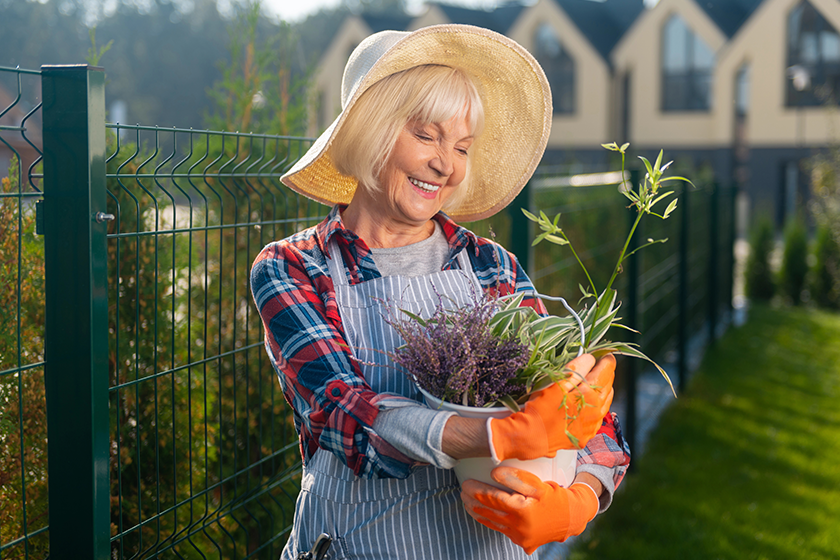Sensory gardens for dementia patients offer a unique and transformative approach to care within Assisted Living communities. These gardens are specially designed outdoor spaces that engage multiple senses, providing numerous therapeutic benefits. As you and your loved ones explore Assisted Living options, understanding the role of sensory gardens can help you make more informed decisions about care.
Enhancing Well-Being Through Nature
A sensory garden is more than just a collection of plants; it’s a vibrant, living space designed to stimulate sight, smell, touch, sound and sometimes taste. For individuals with dementia, this multi-sensory stimulation can significantly enhance overall well-being.
By engaging with a variety of textures, colors and scents, individuals can experience a calming effect, which helps to reduce anxiety and agitation. This interaction with nature can be a powerful tool for promoting relaxation and peace.
Improving Mood and Cognitive Function
One of the remarkable impacts of sensory gardens for dementia patients is their ability to uplift mood and improve cognitive function. Spending time in these gardens encourages a natural connection to the environment, which can help counteract feelings of isolation or depression.
The tactile activities associated with gardening, such as planting and watering, can also provide a sense of accomplishment and purpose, which is crucial for maintaining cognitive health.
Promoting Physical Activity
Regular physical activity is vital for maintaining health, particularly for individuals with dementia. Sensory gardens create an inviting space for gentle exercise, such as walking or gardening, that can be enjoyed at one’s own pace.
The benefits of increased physical activity include improved balance, reduced risk of falls and enhanced overall physical fitness. Engaging in these activities helps to release serotonin, a chemical that promotes a sense of calm and focus, thus contributing to a better mood and overall well-being.
Building a Sense of Community
Creating and maintaining a sensory garden fosters a sense of community among residents. These gardens serve as a communal space where individuals can gather, socialize and participate in shared activities.
Such interaction not only strengthens social bonds but also gives residents a sense of ownership and pride in their environment. When you and your loved ones see the garden’s progress and beauty, it provides a tangible reminder of the positive impact of community involvement.
Stimulating Creativity and Expression
Sensory gardens provide ample opportunities for creative expression and personal involvement. Residents can participate in planning the garden, choosing plants and even decorating the space with painted pots or handmade wind chimes.
The creative involvement can be particularly beneficial for those with dementia, as it allows for self-expression and the joy of seeing their ideas come to life. Such activities encourage residents to use their imagination and contribute to a shared project, enhancing their sense of purpose.
Providing Therapeutic Benefits
The therapeutic effects of sensory gardens are well-documented, particularly for individuals living with dementia. The gardens offer a safe and tranquil environment where residents can decompress and reconnect with nature.
This connection can lead to improved sleep patterns, better bone health through exposure to sunlight, and a general sense of well-being. The holistic benefits of spending time in a sensory garden make it an invaluable feature in Assisted Living communities.
Encouraging Routine and Stability
For those with dementia, routines can provide a comforting sense of stability. A sensory garden can become a part of this routine, offering a consistent space for daily activities and events. Whether it’s a morning walk or an afternoon of light gardening, these activities help to create a structured and predictable environment, which is beneficial for cognitive health and emotional stability.
At our Assisted Living community, we believe in the transformative power of sensory gardens to enhance the lives of our residents. If you’re looking for a compassionate and engaging environment for your loved ones, reach out to us today.







